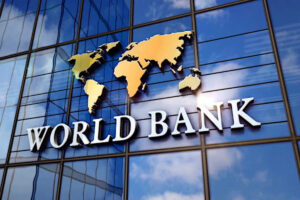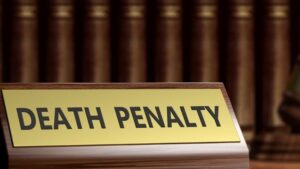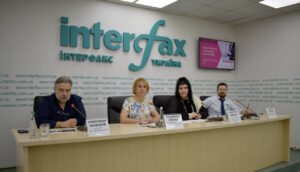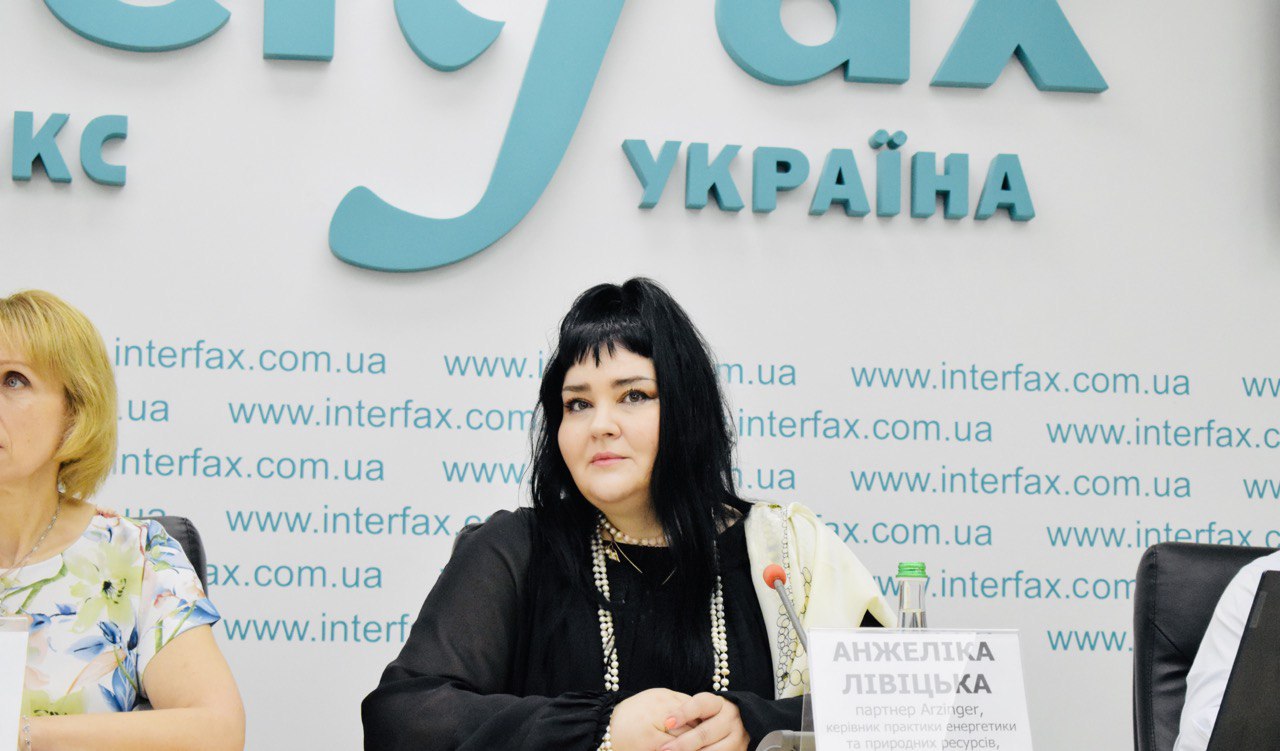
Mexico’s economy contracted by 0.3% in the third quarter relative to the previous three months, according to final data from the country’s statistics office. The estimate matched preliminary data. Analysts on average also did not expect a revision, Trading Economics reported.
The downturn in the economy is being recorded for the first time since the fourth quarter of last year. Mexico’s GDP grew 0.6% in the second quarter.
Mexico’s economy contracted at an annualized rate of 0.1% in the third quarter. A contraction of 0.2% was previously reported.
The Experts Club analytical center has previously made a video analysis and forecast on the macroeconomy of Ukraine and major countries of the world.
https://youtu.be/kQsH3lUvMKo?si=1StxlkcIzQlpF0_q
ECONOMY, economy macroeconomy, EXPERTS CLUB, MACROECONOMY, MAXIM URAKIN

Information and analytical center Experts Club analyzed the data of the International Monetary Fund (IMF) on the external debts of states and their ratio to the GDP of states. The video is available on the Experts Club YouTube channel. In 2023, the leader in terms of public debt to GDP was Sudan – its figure reached 252%. This is due to the economic crisis, the consequences of the armed conflict and hyperinflation.
In second place is Japan (206%), which traditionally holds a high debt burden due to large-scale government borrowing and debt financing of the budget.
Third place went to Lebanon (195%), whose economy continues to suffer from the effects of the financial crisis, corruption and political instability.
Further down in the ranking are:
4. Greece – 185%
5. Singapore – 177%
6. Argentina – 155%
7. Italy – 132%
8. Zambia – 127%
9. Bahrain – 123%
10. Maldives – 123%
11. Bhutan – 116%
12. Laos – 116%
13. Cape Verde – 114%
14. Barbados – 113%
15. USA – 112%
16. Cyprus – 112%
17. Portugal – 105%
18. Great Britain – 101%
19. Dominica – 100%
20. Republic of Congo – 99%

Maxim Urakin, founder of the information and analytical center Experts Club, PhD in Economics, said that a high level of public debt in relation to GDP is a serious challenge for the economy of any country.
“In some cases, such as Sudan or Lebanon, this is a consequence of structural crises, armed conflicts, and political instability. At the same time, countries such as Japan and Singapore, despite their high debt ratios, have sustainable economic models that allow them to effectively manage their financial obligations. It is crucial for Ukraine to find a balance between attracting external financing and ensuring economic sustainability to avoid a debt trap and excessive dependence on creditors,” Urakin said.
As of 2023, Ukraine’s external debt totaled $132.4 billion and its ratio to GDP was 87%. Ukraine is not among the top 20 countries with the highest debt-to-GDP ratio, but ranks high among countries with large government liabilities.
In terms of absolute debt, Ukraine is about 30th in the world, but due to the military conflict and the need for external financing, this indicator continues to grow.
If the situation does not stabilize, further growth of the debt burden is predicted, which may lead to difficulties in debt servicing and increased dependence on international creditors.
Video analysis is available at the link – https://www.youtube.com/shorts/oT_5cTOnM8k

On the first day of his presidency, Trump intends to sign executive orders, including reinstating the death penalty at the federal level in the United States, which was abolished by Biden, and declaring a state of emergency on the southern border, representatives of the new administration told Reuters.
“Even before Trump was set to take office, his aides detailed a series of executive orders he would sign immediately, including 10 on border security and immigration, his top priority,” Reuters reported on Monday.
It is reported that on the first day, Trump will also declare a state of emergency on the southern border, send troops to the region and reinstate the policy that forces asylum seekers to wait in Mexico for a hearing in a US court. Will require that official U.S. documents, including passports, indicate the gender assigned to citizens at birth. Pardon 1,500 people involved in the Capitol storming case.
“On his first day, which also happens to be Martin Luther King Jr. Day, he will also sign an executive order ending diversity, equality and inclusion initiatives in the federal government, officials said,” the agency noted.
In the midst of the ceremony, Trump is expected to begin “signing his first executive orders, many of which are likely to face legal challenges.”
Earlier, the Experts Club think tank, Brian Mefford and Maxim Urakin, released a video analysis of what changes await US domestic and foreign policy under Trump, the video is available on the Experts Club YouTube channel – https://youtu.be/W2elNY1xczM?si=MM-QjSqGce4Tlq6T

Ukrainian exporters of products to EU countries and the Ukrainian government should pay more attention to the problem of decarbonization within the Green Deal strategy and, in particular, CBAM – an additional tax for goods with a high level of carbonization during production, which comes into effect from 2026.
This opinion was expressed by experts and representatives of companies during a roundtable discussion held at the press center of the Interfax-Ukraine news agency on Tuesday on “The impact of CBAM on domestic exporters”.
Olga Kulik, Director of the Department of Ecology of Energy and Green Economy of the Federation of Employers of Ukraine, noted that CBAM is very important, it affects exporters, every enterprise.

According to her, during a recent business trip she communicated with representatives of enterprises and structures in Europe, they collect information on CBAM reports. At the same time, if European companies realize the requirement for verification of emission reports, Ukrainian enterprises have problems in this direction, in particular, Ukrainian verifiers must be accredited by the European Commission.
“Verification by data – time is going fast, and we cannot delay these problems. Therefore, the Ministry of Economy together with the Ministry of Ecology will negotiate so that verification will be accredited in the EC. But so far the issue has not been resolved,” Kulik said.
On the other hand, according to her, European countries also have certain problems with the unified standardization of a number of points, with further steps to implement the “green” initiative. It is necessary to create a working group, for work within the framework of which Ukraine should receive an invitation.
In turn, the director of the information and analytical center GMK Center Stanislav Zinchenko stated that by implementing the SWAM mechanism the EU protects its markets. And in the future similar mechanisms will be introduced in other countries, such as the UK, USA, Australia.
“This is a new wave of protectionism, this is ‘green’ protectionism and it will step the planet. It will lead to a reformatting of flows, but it will also help reduce emissions,” Zinchenko predicts, adding that there are currently not enough emission verifiers in the EU, in Ukraine and globally.
“Less than 10% of the 20,000 companies in Germany that were supposed to report on time have done so. And in Ukraine there are also problems with the reports, with the methodology. A very crude procedure, a crude experiment, but it is starting to affect Ukrainian companies. Ukraine does not have a single document on SWAM”, – stated the expert.
According to him, due to force majeure circumstances because of the war, Ukraine may not be subject to the requirement to submit verified reports from 2026, but only declarative reports on SWAM, without payment for certificates.

According to him, in case of introduction of strict requirements of the SWAM, Ukraine’s losses, if calculated at 2023 prices, may amount to $600 million for pig iron exports (“minus” 1.4 million tons), $640 million for semi-finished products, and $200 million for rolled products. In general, losses at steel enterprises may reach $1.5 billion.
Other industries will also suffer losses.
“We do not see the interest of either the government or the ministries, which should conduct constant negotiations. And the EU is surprised why Ukraine is not actively involved in this process. Unfortunately, part of the government employees believe that this is a problem of business, not the Cabinet,” Zinchenko summarized.

Arzinger partner, head of the Energy and Natural Resources, Environmental Protection and Sustainable Development practice Angelika Livitskaya emphasized that SWAM is a mix of ecology and economics, and Ukraine has an obligation to implement EU legislation in Ukraine.
“We are implementing a number of waste management regulations. And we expect more cooperation from the government and ministries. It is unlikely that we will make it by 2050, but we have a commitment,” Livitskaya said.
According to her, cement, steel, aluminum, and fertilizers will fall mainly under SWAM. And it is necessary to submit reports by May 31 of each year, the first time – by May 31, 2027 with a report for 2026. Failure to submit reports will result in significant fines, from EUR10 to EUR50 for each ton of emissions.
“The government needs to raise the issue of force majeure for Ukrainian enterprises,” Livitskaya believes.
Lyudmyla Kripka, executive director of the Ukrcement association, noted that Ukrainian enterprises have the opportunity to declaratively submit emission reports.
“We initiated such a procedure, we are not obliged to buy SWAM certificates under force majeure circumstances. We offer and ask to work within the framework of SWAM on a declarative principle,” – emphasized Kripka.
The President of Ukrmetallurgprom OP Oleksandr Kalenkov noted that metallurgical enterprises consider SWAM as an irreversible process: “One way or another, it will be implemented and will be worldwide, it will lead to some reformatting of trade all over the world”.
Previously up to a third of steel products went to the EU, the share has now increased due to the blocking of the sea route, and it could increase if the blockade resumes.
“It is important for the government to get involved in the process, to pay more attention to it,” Kalenkov stressed, noting that Euro companies from this eco-initiative receive certain subsidies for their development and modernization.

“It is necessary to level the playing field between Ukrainian and European companies – to apply force majeure conditions for Ukrainian enterprises. It is necessary to approach this issue comprehensively, to take into account the issues of modernization of companies. The Ministry of Industry and Ministry of Economy are involved in this process, but it is important that there is one center that will manage this process, so that a unified position is communicated to European colleagues”, – said the head of Ukrmetallurgprom.
He also believes it is necessary to create a competitive market of verifiers in Ukraine so that both local and European companies could work here.
Earlier, the head of international relations of Metinvest Group Andriy Kryl during Ukraine’s Future Summit said that soon a new obstacle for Ukrainian companies to work in the European market will be the carbon duty (CBAM), which will work in full in 18 months. The top manager expressed hope that thanks to the dialog between the Ukrainian government and the European Commission these obstacles can be overcome and trade flows will remain uninterrupted.
In turn, Vladyslav Varnavskiy, Director for Ecology and Industrial Safety of Interpipe, at the “Exporters’ Summit” organized by Forbes Ukraine, noted that companies should pay more attention to environmental projects within the framework of the EU requirements on the topic of “green” economy – Green Deal and CBAM. And clarified that despite the fact that this topic is becoming increasingly broad and not only political, but also economic and public, in Ukraine so far few companies pay attention to it, even exporters of products to the EU.
As stated on the website of the European Commission, the “green” agreement (Green Deal) is a strategy that should bring the EU economy to a modern, resource-efficient and competitive state through commitments to reduce greenhouse gas emissions by 55% by 2030 and stop completely by 2050.
ANZHELIKA LIVITSKA, CBAM, LUDMYLA KRIPKA, MAXIM URAKIN, OLEXANDR KALENKOV, OLHA KULYK, STANISLAV ZINCHENKO

According to Ukrainians, the countries of the Arab world are neutral in the Russian-Ukrainian war. This was revealed by a joint study by Active Group and the Experts Club think tank, “Attitudes of Ukrainians toward the Middle East and Central Asia,” which was presented at Interfax-Ukraine on Tuesday.
“The analysis includes a predominantly positive attitude of our citizens towards such countries as Israel (72.5%) and Turkey (55%), while the attitude towards other countries in the region is mostly neutral. Ukrainians are extremely negative about Iran (76%) and mostly negative about Afghanistan (52.6%),” said Oleksandr Poznyi, director of the research company Active Group.

In addition, the expert added that Ukrainians are mostly positive about countries with which they have trade or cultural ties. This is natural, as such ties promote mutual respect between societies and countries.
In his turn, Andriy Yeremenko, founder of the research company Active Group, emphasized that the attitude of Ukrainians towards the Middle East and Central Asia varies depending on many factors.

“We can see that the attitude of citizens is really certain only in relation to two countries – Iran and Israel. These are the countries where the percentage of those who find it difficult to answer is less than 20%. The rest of the countries have a much higher percentage of uncertainty, which indicates that Ukrainians are not well informed about these countries,” emphasized Eremenko.

Maksym Urakin, founder of the Experts Club think tank, added that building cooperation with the Middle East and Central Asia is very important for the development of the Ukrainian economy, especially in the agricultural and IT sectors. These industries have great potential for development and can become the basis for a mutually beneficial partnership.
“It is necessary to implement a state strategy to reduce the trade deficit and increase Ukraine’s export potential. This will create a more balanced and sustainable economy that will be less dependent on external factors. Ukraine may be interested in agricultural products, IT clusters, and educational services. We are interested in sales markets, agricultural technologies, metallurgy, and chemistry,” Urakin emphasized.

According to him, trade between Ukraine and the countries under study is currently growing rapidly.
“Turkey is the largest trading partner among the countries of the Middle East and Central Asia, accounting for more than half of all trade with these countries. This shows the importance of Turkey for the Ukrainian economy,” the founder of Experts Club added.
According to Urakin, a balanced foreign economic policy in the region can not only significantly improve Ukraine’s relations with Middle Eastern countries, but also have a positive impact on the overall state of the economy.
The results of the study are available here.
ACTIVE GROUP, ALEXANDER POZNIY, ANDREY EREMENKO, CENTRAL_ASIA, ECONOMICS, EXPERTS CLUB, MAXIM URAKIN, MIDDLE_EAST, POLL, SOCIOLOGY